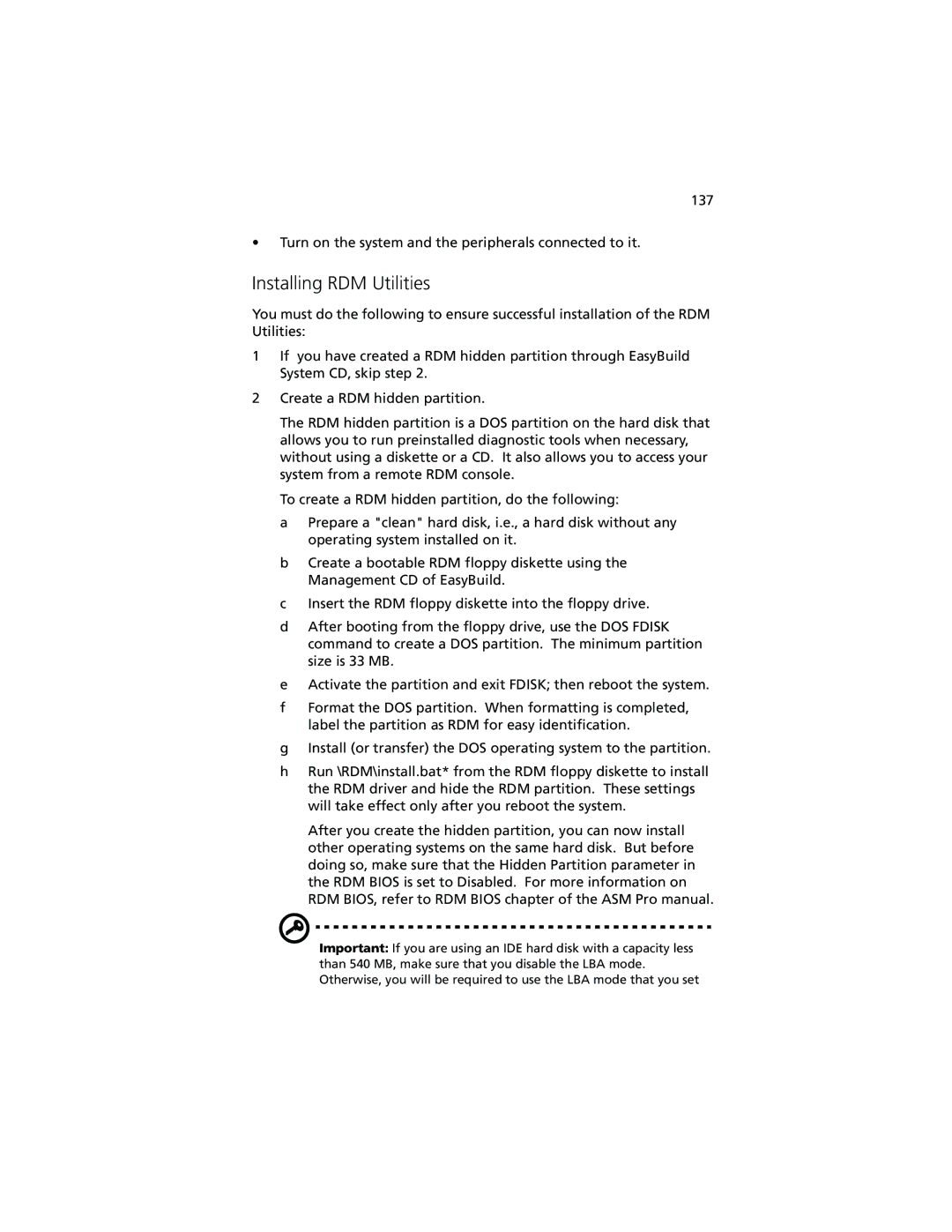137
•Turn on the system and the peripherals connected to it.
Installing RDM Utilities
You must do the following to ensure successful installation of the RDM Utilities:
1If you have created a RDM hidden partition through EasyBuild System CD, skip step 2.
2Create a RDM hidden partition.
The RDM hidden partition is a DOS partition on the hard disk that allows you to run preinstalled diagnostic tools when necessary, without using a diskette or a CD. It also allows you to access your system from a remote RDM console.
To create a RDM hidden partition, do the following:
a Prepare a "clean" hard disk, i.e., a hard disk without any operating system installed on it.
b Create a bootable RDM floppy diskette using the Management CD of EasyBuild.
c Insert the RDM floppy diskette into the floppy drive.
d After booting from the floppy drive, use the DOS FDISK command to create a DOS partition. The minimum partition size is 33 MB.
e Activate the partition and exit FDISK; then reboot the system.
f Format the DOS partition. When formatting is completed, label the partition as RDM for easy identification.
g Install (or transfer) the DOS operating system to the partition.
h Run \RDM\install.bat* from the RDM floppy diskette to install the RDM driver and hide the RDM partition. These settings will take effect only after you reboot the system.
After you create the hidden partition, you can now install other operating systems on the same hard disk. But before doing so, make sure that the Hidden Partition parameter in the RDM BIOS is set to Disabled. For more information on RDM BIOS, refer to RDM BIOS chapter of the ASM Pro manual.
Important: If you are using an IDE hard disk with a capacity less than 540 MB, make sure that you disable the LBA mode. Otherwise, you will be required to use the LBA mode that you set
